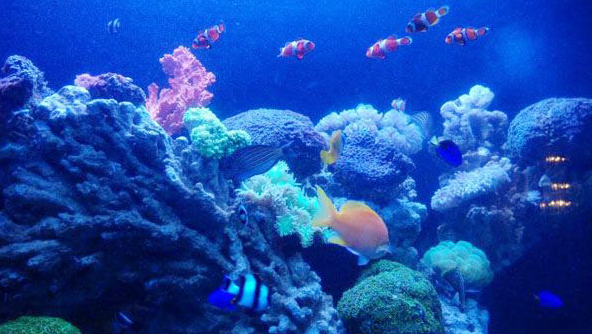- HOME
- ABOUT US
- NEWS
- ACHIEVEMENT
- PICTURE
- VIDEO
- CHINESE VERSION
- CONTACT US
China has built the world's largest database of deep-sea bacteria amid the country's increasing efforts to promote oceanic study and conservation.

China builds the world's largest database of deep-sea bacteria. [File Photo]
China has successfully split nearly 10,000 microbes and built the country's first collection of deep-sea bacteria, which carries 22,000 microbes and covers more than 3,400 species, Sun Shuxian, deputy director of the State Oceanic Administration (SOA), said at a Saturday press conference, the Xinhua News Agency reported.
It is also the world's largest collection of deep-sea bacteria, Bai Shan, an official from the China Ocean Mineral Resource R&D Association, organizer of the press conference, told the Global Times on Sunday.
The government attaches great importance to deep-sea exploration, which is also receiving more and more attention from the general public, Bai added.
The collection provides a database for scientific research, primarily in marine biodiversity and evolution, and can also assist with the search for new compounds, which can be used in medical research, said Shao Zongze, director of SOA's Laboratory of Marine Genetic Resources.
However, it may still take 10 to 15 years for these deep-sea resources to be used in actual production of medicine, Shao noted.
According to Shao, the collection has been accumulated since 2003 and new bacteria have been added to the collection over time.
China is now among the leading countries in deep-sea exploration, especially in the collection of bacteria and the building of deep-sea research submersibles, Wang Yamin, an associate professor at the School of Ocean Biology of Shandong University, told the Global Times.
The progress China has made in the exploration and preservation of deep-sea biological resources has changed China's position in international research and development of the seafloor genetic resources, said Sun.
In the research on deep-sea organisms, the SOA has completed the species classification and evolution research of more than 100 marine microbes, marking important progress in the research on the functions and metabolic mechanisms of deep-sea microbes, Sun noted.
According to Sun, the SOA has also evaluated the potential value of more than 4,000 microbes in areas including marine medicine, biopesticide, environmental protection, biotechnologies and industrial enzyme, and has applied for more than 200 patents at home and abroad.
In oceanic expedition, China has formed a squad of submersibles: Jiaolong, Hailong and Qianlong. The manned submersible Jiaolong completed its 150th dive in June in the Yap Trench, Xinhua reported.
China is making progress in becoming a global maritime power, pushing forward technology and research on all fronts.
Haiyang Dizhi 10, or Ocean Geology 10, China's new domestically built marine geological survey vessel, made its debut on June 28, meaning that China has built a three-dimensional system for deep-sea exploration, Xinhua reported.